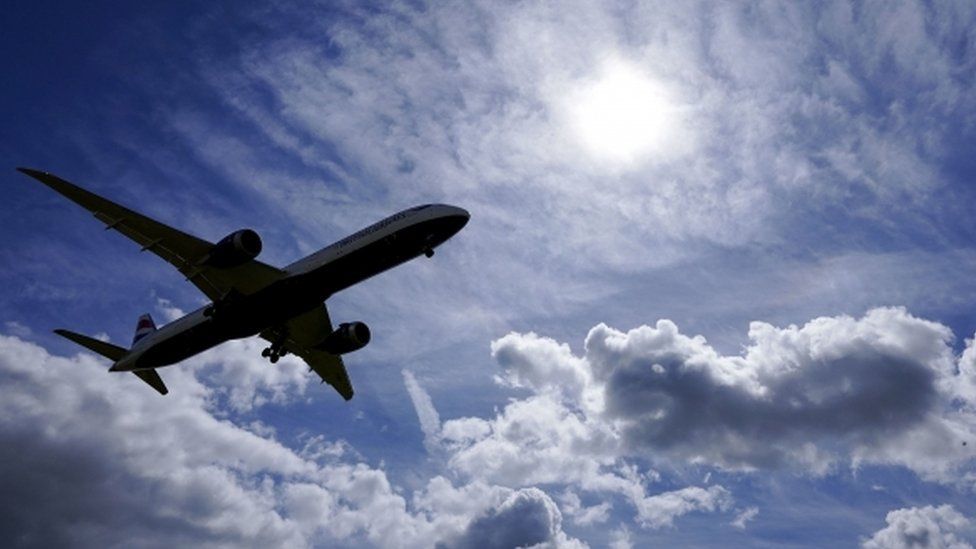In this blog article, the author discusses the need for Korean Air to create limits on baggage fees and their policy. They argue that creating a limit on baggage fees would help to keep customers happy with the airline
Korean Air Baggage Fees and Policy is the world’s biggest air carrier, with 50,000 employees and 100 aircraft. They have an international reputation for being punctual, professional and accommodating. However, the airline’s baggage policy has been a topic of discussion since their arrival in Vancouver in 2014.
The History of Korean Air Baggage Fees and Policy
Korean Air has been one of the world’s most popular airlines for many years now. They offer both domestic and international flights and have been in operation since 1982.
The airline is known for their low fares, award-winning service, and extensive baggage policy. In this article, we will explore the history of Korean Air baggage fees and policy.
In 1982, Korean Air started operations as a charter airline. Founder Cho Yang-ho wanted to provide low-cost air travel to the citizens of Korea. At that time, air travel was very expensive and only the wealthy could afford it.
Initially, Korean Air only offered charter flights between Seoul and various tourist destinations in Southeast Asia. However, demand for their services was so high that they decided to start offering scheduled flights between Seoul and Japan in 1984.
From there, the airline began to expand its services both domestically and internationally. In 1995, they began offering scheduled flights between Seoul and New York City. This was a huge milestone for Korean Air as it marked their first international flight outside of Asia.
Since then, the airline has continued to grow rapidly and today they offer service to over 100 destinations in over 50 countries around
What are the rates of Korean Air baggage fees?
Korean Air baggage fees are some of the highest in the air industry. However, there are a few ways to avoid these fees.
First, make sure your bag is within the weight and size limits. Second, use Korean Air’s online check-in system and avoid manual check-in. And finally, be prepared to pay for baggage upgrades if your bag is too heavy or large.
To see full article and other blog posts from our team visit
Korean Air baggage fees are some of the most expensive in the world. You can check the fees for a particular route on the Korean Air website, but here are some general tips to help save on your baggage costs:
-Check the rates for your destination and time of year before you travel. The rates can change frequently and without warning.
-Pack light. If you can fit everything you need into one bag, you’ll likely save money.
-Avoid bringing a lot of heavy items with you. They’ll add to your luggage weight and therefore increase your baggage fee.
-Request a lightweight bag if possible. This way, your luggage will still be heavy enough to be checked, but not so heavy that it becomes a burden to carry around.
-Be prepared to pay more if you want to check a large item like a bike or an RV. These items take up more space in the baggage compartment and will therefore cost you extra.
What are the terms and conditions of a Korean Air luggage policy?
When traveling to Korea, always be aware of Korean Air baggage fees and policy. Before your trip, be sure to research the airline’s policies concerning checked bags, weight and size limitations, and stowage allowances. Here are some key points about Korean Air baggage fees and policy:
– Korean Air charges $35 for the first checked bag and $70 for each additional checked bag. The weight limit for each bag is 50 pounds, and the size limit is 19 inches by 14 inches by 9 inches.
– You are allowed one carry-on bag and one checked bag per passenger. The weight of the carry-on bag is limited to 20 pounds, while the size of the checked bag is limited to 23 inches by 13 inches by 9 inches.
– Each passenger is allotted one stowage allowance of 47 linear Inches (LIA), which includes overhead bin space. Any excess luggage will have to be stored in a facility at the airport or shipped home at your expense.
Surcharge on Failed Luggage Identification
If your luggage does not have the original airline tag or is damaged, Korean Air will charge you a surcharge of 100,000 won (approximately $88 USD) for each piece of luggage. Additionally, if your bag is oversize or overweight, Korean Air may require you to pay an additional fee.
Korean Air has a baggage surcharge for passengers who have failed to correctly identify their checked luggage. This surcharge is applied to all passengers regardless of whether they are travelling with a companion or not. The surcharge ranges from KRW500 (US$43) to KRW4000 (US$3,000), depending on the weight of the luggage. The surcharge will also apply if the passenger’s flight is cancelled and their luggage is not located.
Conclusion
Korean Air Baggage Fees And Policy Review
We’ve reviewed all the important information about baggage fees and policy from Korean Air. If you are flying with KAL, be sure to read through this article to ensure that you are aware of all the important details!
The Basics:
-Korean Air charges $25 for a first bag and $35 for each additional bag.
-Baggage must be weighed and measured at check-in.
-KAL does not allow oversized or overweight luggage.
-KAL will charge $100 for delayed baggage.
-Luggage may not be left behind during your journey.
-If your baggage is lost or damaged, KAL will not provide a refund or compensation.
The Fine Print:
-The Korean Air website has a search function that can help you find the information you are looking for more easily.
-If your luggage is lost or damaged, please contact KAL’s Lost Luggage Assistance Center at as soon as possible.
-KAL only provides refunds or compensation in cases of extreme misfortunes such as theft or natural disasters




